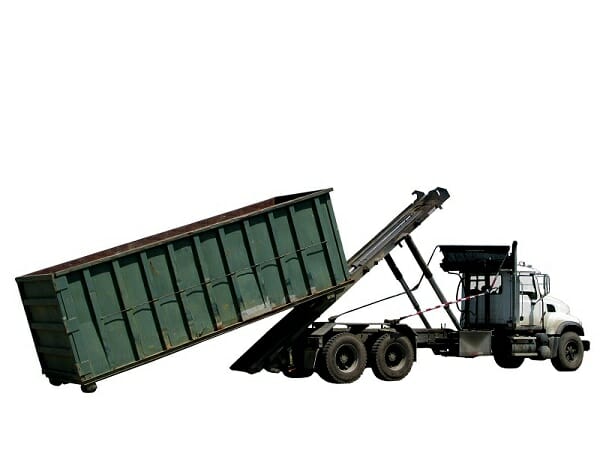- BY Evelyn
- POSTED IN Dumpster Rental
- WITH 0 COMMENTS
- PERMALINK
- STANDARD POST TYPE
Trash is always going to be a problem for a lot of people. Not only does it take up space, but it can be hard to get rid of, especially if you have built up a lot from renovations or other larger-scale work.
On top of that, environmentally-conscious people might find themselves a little stressed at the fact that they can’t throw it away very ethically. If you can’t recycle something, then the only option is to throw it in a landfill – right?
We happily deliver to all customers in Birmingham and surrounding areas of Pemberton Township in Burlington County.
Not exactly. There are numerous ways that your trash can be turned into power and fuel, no matter how strange it might sound. In a world with so many pollution issues, it is good to know that you can have your trash disposed of in a more environmentally-friendly way.
Gasification
Certain groups have figured out ways of putting waste through gasification – the process of turning it into hydrogen, carbon dioxide, and carbon monoxide. This gasification is a reliable process and can accept a huge variety of waste, including hazardous or medical-related materials.
The resulting gases can be used to help produce power in various ways while also disposing of the trash itself, cleaning it up, and using the resulting products. The gases can have multiple uses and can even be treated as a fuel source when handled in the right way.
Thanks to this system, a lot of waste that otherwise can’t be reused has a new purpose. Hazardous waste is one of the most common since it can’t be used for much else and is not easy to dispose of safely. Medical waste is similarly hard to get rid of, so gasification can make it useful again.
Biogas
Biogas is one of the most common options, and it is easy to see why. Multiple companies and groups have attempted to set up facilities where they turn gathered trash into biogas, a fuel that can be used alongside other gases to power specific machines, equipment, and vehicles.
This biogas can be created from a variety of different materials, from solid waste to yard trimmings, oils, fats, and even pure grease. All of them need to be organic in some form, but this even means that scraps of food can be converted into fuel, no matter how quickly they are rotting.
Biogas can be used to create electricity without having to burn fossil fuels, making it a reliable option for keeping a stable electrical supply going. Biogas being clean also means that it will not produce as many unexpected waste products, which can make it better for the environment overall.
Plastic Fuel
Clean fuel can often be produced from unwanted waste – specifically, plastic waste. This plastic can be converted into a clean fuel that has ultra-low sulfur levels. Since plastic waste is often one of the hardest types to get rid of, this solves two problems at once.
Roughly 86% of plastic put through the conversion process ends up becoming fuel, with 8.3 pounds of waste plastic equating to around a gallon of fuel. This ratio is only going to increase as the process is refined further and further, and it is possible that 100% could eventually be converted into fuel.

This fuel can be used in the same way as all conventional fuels: it could power vehicles, generate electricity, and generally become another fuel source that we could use in day-to-day life. This prevents plastic from simply being thrown away, never decomposing.
Why does this matter?
The world only has so many resources, and making effective use of everything left on the planet is important. Throwaway plastics are getting less and less common every year, but until there are systems in place to completely reuse all waste materials, not everything can be recycled.
Disposing of waste the conventional way usually means that it gets burned or placed in a landfill, with only some being recycled when possible. Reusing what we already have is important, and many groups have begun to work towards solutions that can help recycle non-recyclable materials.
A lot of materials, such as plastic and hazardous waste, can’t be disposed of easily and do not really decompose. This means that they have no real purpose after being thrown away and can linger for hundreds of years if nothing makes them break down faster.
How do I dispose of waste like this?
Waste disposal all depends on the kind of work that you are doing and what sort of waste you are getting rid of. Wood can easily go to a recycling center, but things like medical waste or scrap plastics are not always easy to manage.
Having a dumpster on standby is a good idea for larger projects, especially ones that might leave you with a lot of waste that can’t be recycled or reused in any way. This is quite common when renovating or reworking part of a building, whether it is a single home or an entire office block.
Disposing of this is easy – simply rent a dumpster and try to arrange for the proper pick-up and delivery. As long as you can come to a good arrangement, you can easily get the right materials sent to the right place, getting them dropped off at a site where they can convert them into useful fuel.
Whether you want to protect the environment or just do not want your plastics to go to waste, it is not hard to contribute. A quick phone call or two can be all you need to get hold of a dumpster and start filling it with unusable waste, ready to be converted into energy.

 610-679-8449
610-679-8449